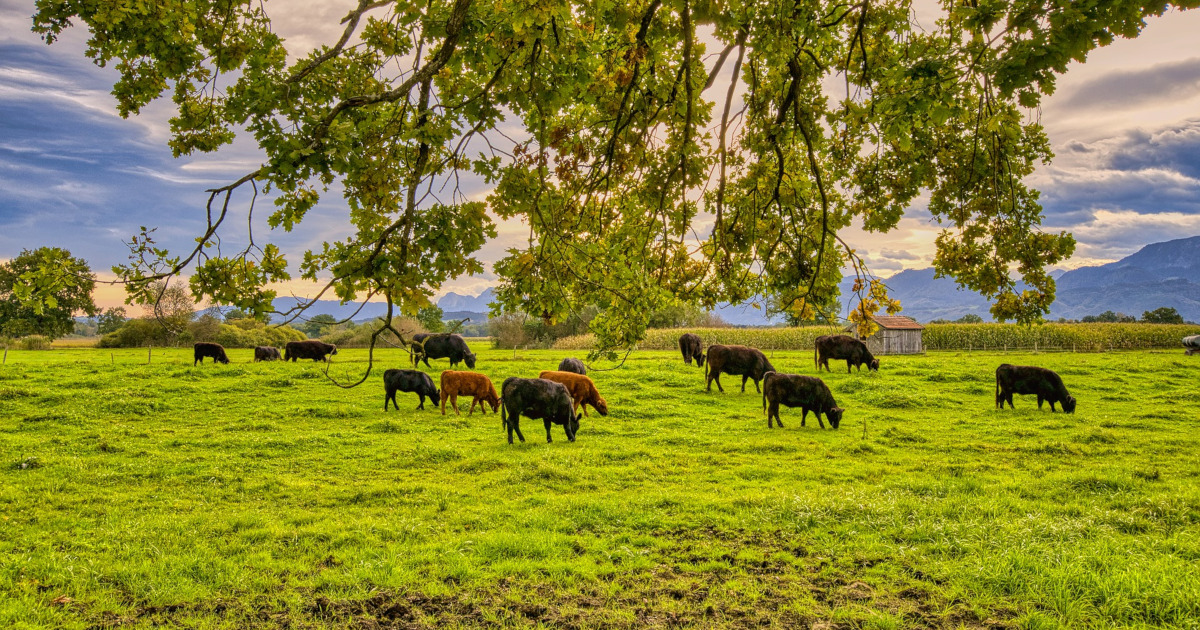
Can Eating Cows Save the Planet?
Within the last couple of decades, many proponents of a movement known as regenerative agriculture (RA) have argued that cattle farming, done differently, could actually fight climate change and repair the environment. As summarised in one article “It’s not the cow, it’s the how.”
April 28, 2021 | Source: GM Watch | by Doug Gurian-Sherman, PhD
It’s no secret that industrial animal agriculture is a disaster for the planet. And cows raised for beef are particularly problematic.
According to one important source, global livestock systems, including the crops grown to feed them, are estimated by scientists to produce almost 13% of global climate emissions. This is over half of all agricultural emissions. Cattle are the main cause, producing about 64-78% of livestock emissions, or about 9% of total human-caused climate emissions.
Cattle are the main culprit because their digestive process produces large amounts of the potent climate change gas methane, unlike non-ruminants like poultry or pigs. Non-ruminants produce some in their manure, but far less overall. Methane from ruminants accounts for about 40% livestock greenhouse gas emissions.
Livestock also require a tremendous amount of land — about 70% of all agricultural land. This leads to deforestation, which releases huge amounts of carbon dioxide into the atmosphere.
